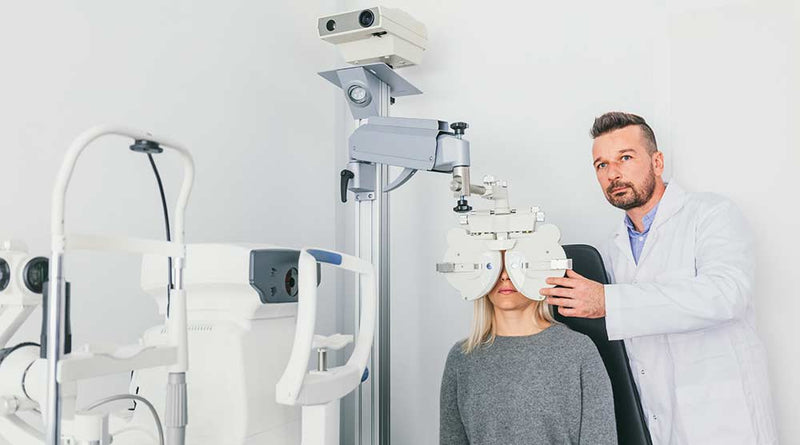How Often Should You Have Your Eyes Checked?

Regular eye exams are essential for maintaining good eye health and detecting potential vision problems before they get to the point where they become a major impediment to your daily life. From schoolchildren to adults, many require regular eye exams to determine whether or not corrective lenses are required, not to mention necessary changes in prescription over time.
However, many people are still relatively unaware of how often they should get an eye exam, believing it’s more a matter of waiting until changes in vision become noticeable. As it turns out, that’s not the best strategy when it comes to being proactive about your vision.
HOW OFTEN SHOULD YOU GET YOUR EYES CHECKED?
The American Optometric Association (AOA) recommends that adults aged 18 to 64, with no vision problems or risk factors for eye disease should have a comprehensive eye exam every two years. This is standard practice, as vision changes can occur within a relatively short space of time. Prescriptions rarely stay current beyond the 2 year mark, even if you can’t actually notice any change in your vision. By contrast, adults aged 65 and older should opt for annual eye exams, as they are more susceptible to age-related eye conditions such as cataracts, glaucoma, and macular degeneration.
And, of course, those with a history of eye problems or a genetic predisposition to certain eye diseases may need to schedule eye exams on a more frequent basis. As for children, the AOA recommends the first exam at six months of age, followed by secondary exams at three years old, and before the start of school. This will guarantee that your child is ready to start exploring the world around them, without suffering from impaired vision that may affect learning or interaction with others.
THE IMPORTANCE OF EYE EXAMS
Adhering to a regular schedule of eye exams is crucial for maintaining good eye health, and detecting potential vision problems as we age. Many eye conditions, such as glaucoma and macular degeneration, have no early symptoms, and can only be detected through a comprehensive eye exam. Therefore, it’s vital not to wait until those afflictions manifest themselves, as they can be much harder to treat.
What may come as a surprise to many people is the fact that eye exams are capable of detecting other health problems beyond just simple vision-related issues. For example, things like diabetes, high blood pressure and certain forms of cancer can be detected through an eye exam, due to the visibility of blood vessels, which will show any abnormalities.
YOUR PRESCRIPTION MATTERS
For most, however, having eye exams is important when it comes to ensuring that your prescription is up to date. If you wear glasses, an eye exam can determine if your prescription needs to be adjusted, even if you think everything is fine. Sticking with the wrong prescription for a prolonged period of time can cause headaches, eye strain, and other issues that can negatively hamper your everyday life. Getting your eyes checked regularly will prevent this.
CONCLUSION
The frequency of recommended eye exams varies depending on age, risk factors, and other criteria mentioned above, but if you notice that your vision has changed, you can always schedule an appointment before the recommended periods in order to see if there’s an issue that needs correcting.
Once you’ve secured your latest prescription, you can move onto the fun stage - choosing a pair of stylish designer eyeglasses that compliments your facial structure, your fashion style, and your personality! Thankfully, Ocuwear makes that easy with a treasure trove of excellent frames crafted by the world’s foremost eyewear designers. If you’ve just been to the optometrist for your latest eye exam, consider visiting our website to browse for a new pair of designer frames. You can even try them on virtually from the comfort of your own home, before you buy!
